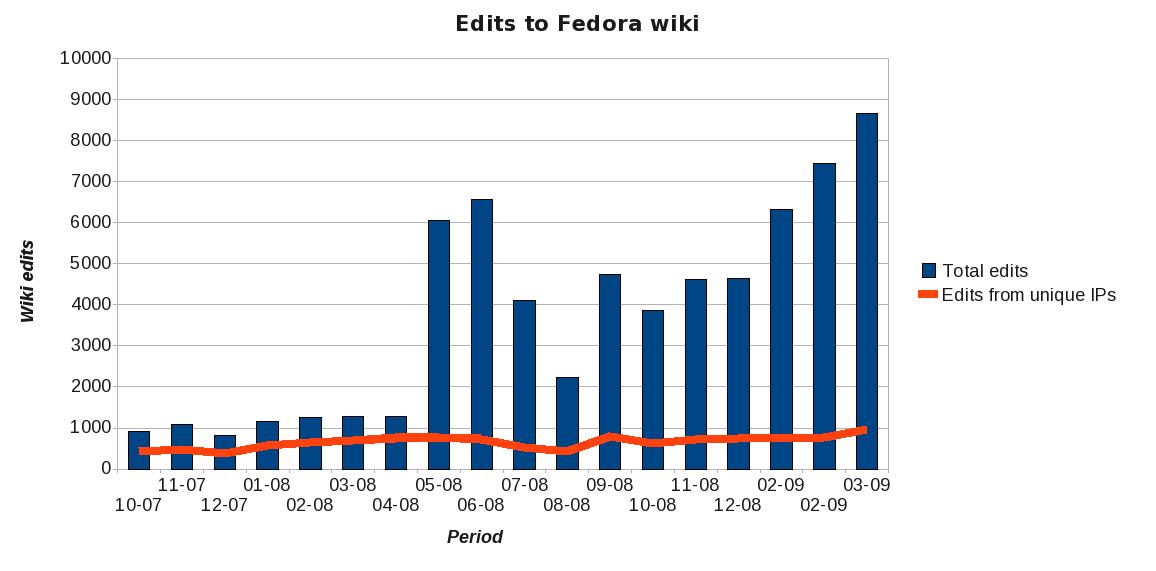When I was studying some of the Fedora statistics recently I wanted to see them graphed out. The raw numbers weren’t speaking thoroughly to me, and when I started pushing them in to various types of charts, some interesting details revealed themselves. In particular, the one around edits to the Fedora wiki.

2.25x the number of unique wiki editors are doing 4.7x the amount of work after the migration and training (9.4x total)
The graphic shows several very interesting facts:
- For seven months leading up to the migration to MediaWiki, there is a steady rise in unique wiki editors, but only a very low rise in the number of edits actually made. More people making fewer edits per person.
- The first initial spike in edits is the import of data in to the new wiki, done using MediaWiki’s API (iirc) that tracks them as actual edits.
- After all the initial migration is done, there is another highly active month of edits in June 2008, including a significant amount of manual clean-up and re-organization.
- Then there is a drop-off in edits starting in July 2008, with one very low period in August of 2008. After August, some of us form up a wiki SIG. We improve the how-to documentation, hound people on how they work with the wiki to improve their experience, and in October 2008 form the fedora-wiki list.
- Things go along steadily until FUDCon 2009 in Boston in the first week of January. At this conference, several things occur. We work harder on teaching how to use the wiki, we talk up the page renaming , and we recruit several people to work on massive page renaming projects.
- The next rise in edits follows all the page renaming work, and results in a better organized, more usable wiki, month-after-month.
- All during the time from the migration to MediaWiki, the number of unique editors remains overall steady. Comparing March 2008 (705 uniques) and March 2009 (973 uniques), almost the same number of unique editors are doing nearly seven times the work. 1,280 edits compared to 8,650.
One thing this all demonstrates for me is the power that one or a few individuals can have to positively affect the daily lives of thousands or millions. This is why we put our energy in Fedora in to those contributors, because that lets them put their energy where it does the most good for the wider array of users.